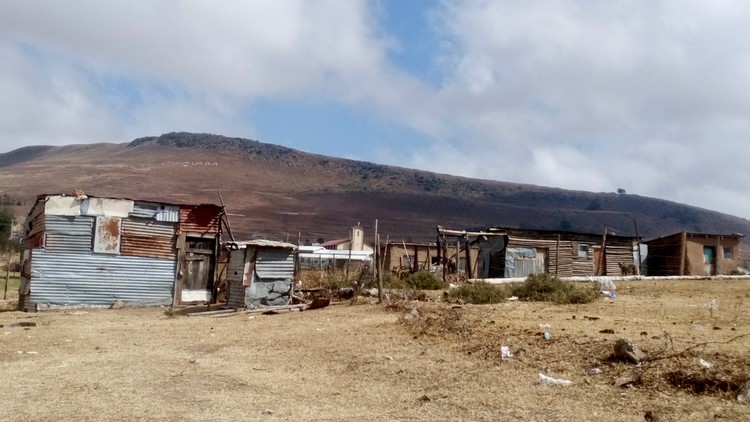Fed up Eastern Cape villagers told to move shacks, promised new homes
“We watched them build proper shelters for those who came after us” says villager
Residents of an Eastern Cape village have been told they need to pack up and move their shacks to nearby land because the sites they currently live on do not belong to them.
The residents face a costly, difficult process as they can ill afford to pay for labour or building materials.
“Intsika Yethu Local Municipality is in the process of relocating 29 people with their families to a new place that is still within the area of Thabo Village,” said municipal spokesperson Zuko Tshangana.
“The current area they are occupying are sites that are individually owned, meaning they are occupying that area illegally,” said Tshangana.
The residents of Thabo Village, about a kilometre from Cofimvaba, said they had been ordered to move their shacks to Phase 2 Thabo Village.
The village is mostly shacks. There are no toilets, no electrification, and one communal tap they share with Phase 2.
Residents say Thabo was established in about 1990 and has never been given basic services. The village at one stage had more than 60 households but the numbers have dropped due to the lack of services.
“Before the elections, municipal officials were here and told us that they will officially give us the sites we are residing on. But there were no papers or anything we could use when they demanded the land back,” said Nomsa Hobe.
Hobe, from Zigudu, a village near Cofimvaba, moved to Thabo in 2005 in search of work. She does piecemeal work, charging R70 to do laundry for people. She sometimes goes for two weeks without work, she said.
“The municipality still expects me to hire people to demolish my shack and rebuild somewhere else. Where am I going to get the money and material? It would be better if they were relocating us to government houses with electricity and toilets,” said Zigudu.
Nosebenzile Mkhondo, who is 68, said she was among the first residents. She said Mnandela View and Phase 2 Thabo Village were established later, but they already got toilets and electricity.
‘’We watched the municipality build proper shelters, provide water, toilets and provide for people who came after us, all in the name of ‘we don’t belong here’. If that was the case, why didn’t they first take us to the houses they built in Thabo Phase 2?
“I am too old. I have spent over 30 years in this place, I am not going anywhere unless the municipality gives me the keys for a new house,” said a fuming Mkhondo.
Mkhondo lives in her three-room home with two children and four grandchildren.
“Some nights we sleep with buckets for the toilet in our rooms, because we are scared to go to the field at night,” she said.
Her one granddaughter is now in grade 9. When Mkhondo runs out of paraffin, her granddaughter has to stay after school to do her assignments and come home late.
When GroundUp visited the area, the road was already marked out by the municipality showing where the sites will start.
Tshangana said out of 29 families, 22 had been approved by the Department of Human Settlement for new houses, for which construction dates still had to be confirmed.
But residents are sceptical. They say they have seen no documentation guaranteeing that there are houses waiting for them after they move.
Tshangana said the municipality has already planned a programme that will provide electricity and it will facilitate with the Chris Hani District Municipality to provide water and sanitation as soon as the project is complete.
“The municipality is keen to ensure that the process is done in a manner that will be fair to every individual,” he said.
Residents, meanwhile, want to know when construction will begin.
Next: Glebelands hostel murders: accused plead not guilty
Previous: Generations of Cape Town flower traders cut it in the city market
© 2019 GroundUp.
This article is licensed under a Creative Commons Attribution-NoDerivatives 4.0 International License.
You may republish this article, so long as you credit the authors and GroundUp, and do not change the text. Please include a link back to the original article.



